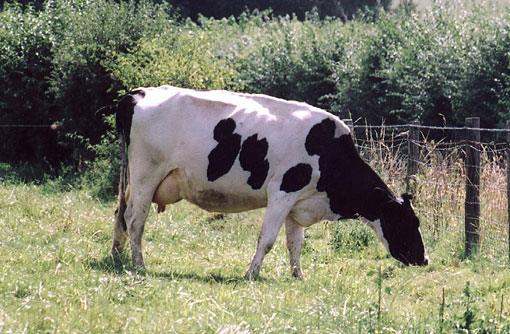Cut concentrate use to boost milk yields

Reducing a dairy cow’s consumption of concentrates in favour of more grass can boost milk yields and reduce costs, studies into maximising grass in high-yielding herds have found.
According to scientists, increases in average milk yields in recent years have been due to increases in concentrate use, rather than the best use of forage or grass.
And with grass offering more than adequate amounts of protein for cows’ diets at low costs, farmers could be using it much more in their production systems.
“The major limiting factor of grass is related to intake and the ability of cows to eat enough,” said Liam Sinclair, of Harper Adams University’s research team.
“Cows need about 18kg of dry matter a day, but the average intake is just 14.4kg.
“If you want to increase intake, you need to look at how to increase a cow’s ‘bite’- how many grams of dry matter they consume in each mouthful.”
Speaking to producers at the Dairy Technology 2012 event at Harper Adams University on 2 May, Dr Sinclair said even a modest increase from an average bite of 0.4g of dry matter to 0.5g could make a significant difference.
“Over the course of a day, that’s 18kg of dry matter, which is an extra 8kg of milk from grass.”
To get cows to consume more, Dr Sinclair said research had found increased sward height and density increased bite rate.
“It requires a different management of pasture and a different approach to grazing, but it is possible to achieve,” he said.
But he warned that putting more reliance on grass in a cow’s diet instead of concentrates required producers to look carefully at their herd and their swards to ensure stock were properly nourished.
“Stock fed primarily on grass will need supplements and those supplements will need to change throughout the year,” he said.
“Early-season grass has too much protein, is low in fibre and high in proteins, while later in the year it is low in sugar and by-pass protein, so you need to shift supplements accordingly.
“But irrespective of milk yield, I would encourage producers to get cattle to work harder to get milk from grass and no concentrates,” he added.
“Grass can form a substantial part of the diet of high-yielding cows, but it needs a different mindset. It’s not easy to do, but it’s certainly possible to reap the benefits from it.”
